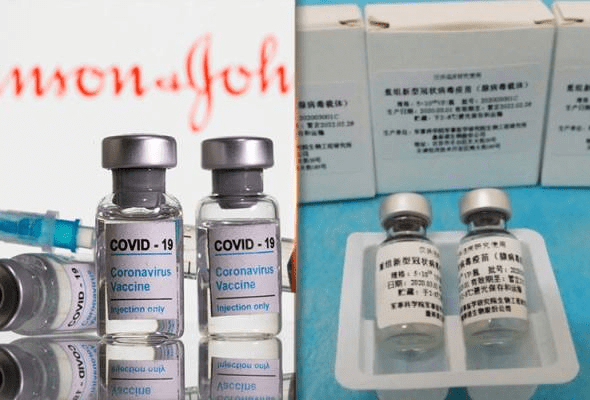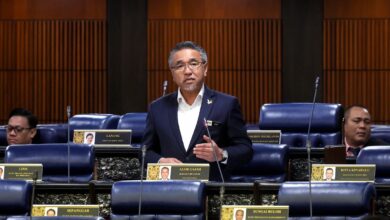Govt studying mix-and-match vaccines approach to boost efficacy

Malaysia is monitoring closely the mix-and-match vaccines approach, with AstraZeneca as the first dose followed by Pfizer–BioNTech for the second dose.
Covid-19 National Immunisation Programme (NIP) coordinating minister Khairy Jamaluddin said this followed reports that many countries are doing it to boost vaccine efficacy.
Khairy, who is also the science, technology and innovation minister, said last week the Vaccine Selection Technical Working Group, chaired by Institute of Clinical Research director Dr Kalaiarasu Peariasamy, had presented a paper on heterologous vaccination where two different vaccines are used to boost efficacy against different variants.
“We have real-world data that we received from Germany regarding heterologous vaccination, using AstraZeneca for the first dose and Pfizer as the second dose, which has been shown to boost the antibody and proven more effective against variants.
“More data is coming in and we are monitoring this closely. We do not want to make a quick decision on this before getting more data,” he said during an online session entitled Path to Herd Immunity: Up Close with Khairy Jamaluddin, today, hosted by the Oxford and Cambridge Society Malaysia.
Khairy was responding to a question on the possibility of having AstraZeneca for the first dose followed by Pfizer–BioNTech for the second dose.
“Once the technical working group is clear on that, we will advise the Special Committee on Covid-19 Vaccine Supply Access Guarantee (which Khairy co-chairs with Health Minister Datuk Seri Dr Adham Baba) and we will implement the heterologous vaccination.”
Khairy said the approach was also possible when facing vaccine supply constraints.
Meanwhile, on calls to shorten the AstraZeneca dosing interval due to the presence of variants, Khairy said the problem faced by Malaysia right now was supply.
“Part of the AstraZeneca supply from the Covid-19 Vaccine Global Access (Covax) programme was delayed, and delays are also expected for the AstraZeneca supply from Thailand.
“So, we are recalculating our schedule right now, on whether we can shorten the interval period of AstraZeneca.”
Khairy said the expert working group had recommended 12 weeks of interval for AstraZeneca.
“According to them, that’s the most efficacious outcome of AstraZeneca dosing interval. Therefore, we went with 12 weeks, based on the science, data, and the fact that we want to get as many people (vaccinated) as possible.
“Now with the presence of the variants, it suggests that you might want to reduce the interval.” Nst
- Kerajaan PN Masih Gagal ‘Bangkrapkan’ Saya – Najib Razak
- Kerajaan Perak bagi telefon pintar percuma buat pelajar
- Resepi filet ikan bakar dengan sos tomato dan parmesan
- Resepi Ayam Goreng Masak Halia
- Nora Soto Padat Terbaik Di Lembah Kelang
- Kemunculan durian Tupai King
Layari Laman Facebook MYKMU NET
Ministry takes UM to task for denying unvaccinated student chance to take exam






You must be logged in to post a comment.